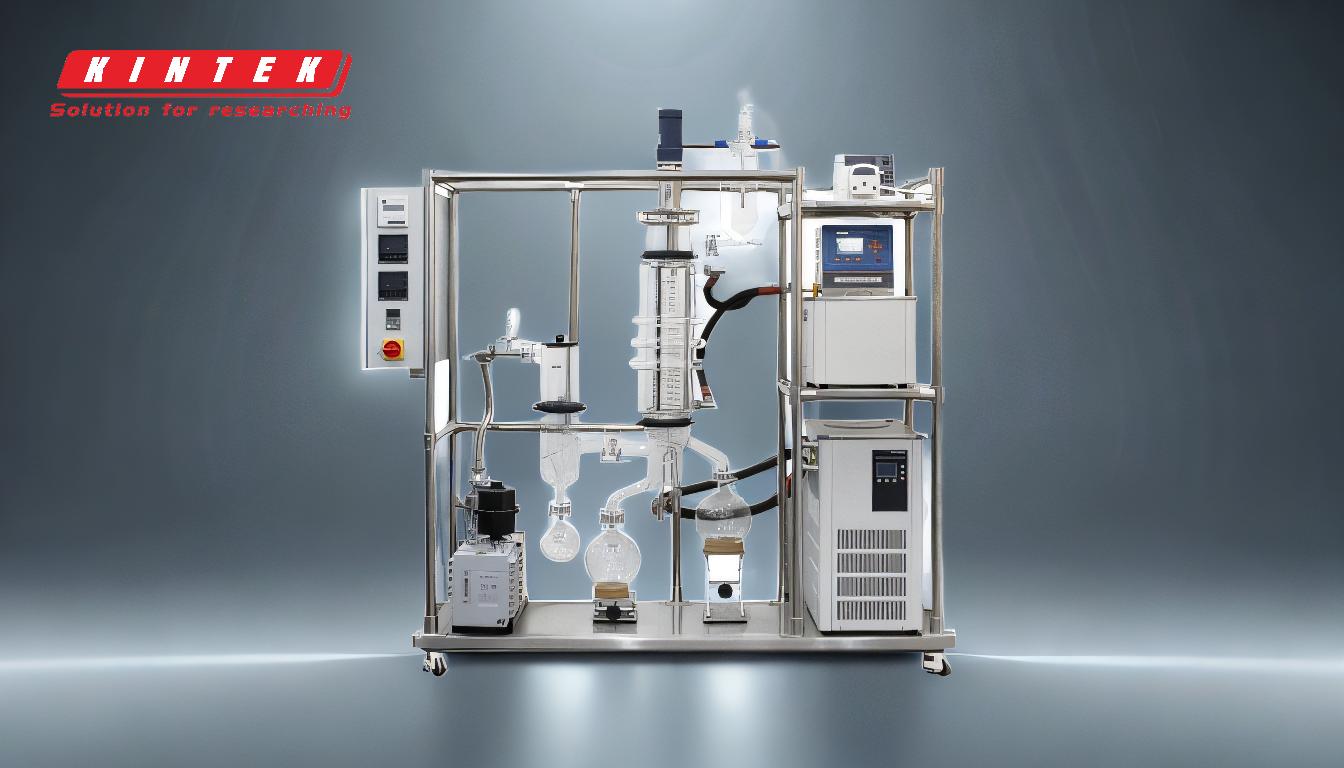Distillation is a critical separation process in the pharmaceutical industry, used to purify or concentrate compounds by exploiting differences in boiling points. The process involves heating a liquid mixture to vaporize the component with the lower boiling point, followed by cooling and condensing the vapor to collect the purified substance. In pharmaceuticals, distillation is particularly important for heat-sensitive compounds, where advanced techniques like short path or molecular distillation are employed to minimize thermal degradation. These methods are used in the production of essential products such as amino acid esters, polymer intermediates, and vitamins like Vitamin E, which is widely used in skincare. The process ensures high purity and safety, making it indispensable in drug manufacturing and other pharmaceutical applications.
Key Points Explained:

-
Definition and Purpose of Distillation:
- Distillation is a separation technique that selectively boils and condenses components of a liquid mixture based on their boiling points.
- It is used to either increase the concentration of a specific component or obtain nearly pure substances.
- In the pharmaceutical industry, distillation is crucial for purifying heat-sensitive compounds and ensuring the safety and efficacy of drugs.
-
Basic Process of Distillation:
- The liquid mixture is heated until the component with the lower boiling point vaporizes.
- The vapor is then cooled and condensed back into a liquid for collection.
- This process is repeated if necessary to achieve the desired purity.
-
Types of Distillation in Pharmaceuticals:
- Short Path Distillation: A specialized technique used for heat-sensitive compounds, where the vapor travels a short distance before condensation, minimizing exposure to high temperatures.
- Molecular Distillation: Similar to short path distillation, it is used for compounds that degrade at temperatures above 250°C, such as organic and silicon compounds.
-
Applications in the Pharmaceutical Industry:
- Production of amino acid esters, polymer intermediates, and vitamins like Vitamin E and Vitamin A.
- Vitamin E, in particular, is widely used in skincare products due to its antioxidant properties.
- Purification of heat-intolerant compounds, ensuring their stability and effectiveness in pharmaceutical formulations.
-
Importance of Distillation in Drug Manufacturing:
- Ensures high purity of active pharmaceutical ingredients (APIs) and excipients.
- Reduces the risk of contamination and degradation, which is critical for drug safety and efficacy.
- Enables the production of complex pharmaceutical compounds that require precise separation techniques.
-
Advantages of Distillation in Pharmaceuticals:
- High efficiency in separating and purifying components.
- Suitable for a wide range of compounds, including volatile and heat-sensitive substances.
- Scalable for both laboratory and industrial applications.
-
Challenges and Considerations:
- Thermal degradation of sensitive compounds must be minimized, requiring advanced techniques like short path or molecular distillation.
- Energy consumption and cost can be significant, especially for large-scale operations.
- Proper equipment design and process optimization are essential to maintain product quality and safety.
By understanding the distillation process and its applications in the pharmaceutical industry, manufacturers can ensure the production of high-quality, safe, and effective drugs and other products.
Summary Table:
| Key Aspect | Details |
|---|---|
| Purpose | Purifies or concentrates compounds by exploiting boiling point differences. |
| Process | Heating, vaporizing, cooling, and condensing to collect purified substances. |
| Types | Short Path Distillation, Molecular Distillation |
| Applications | Production of amino acid esters, polymer intermediates, and vitamins. |
| Importance | Ensures high purity and safety of active pharmaceutical ingredients (APIs). |
| Advantages | High efficiency, scalability, and suitability for heat-sensitive compounds. |
| Challenges | Minimizing thermal degradation, energy consumption, and cost optimization. |
Learn how distillation can enhance your pharmaceutical processes—contact our experts today!









